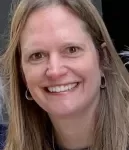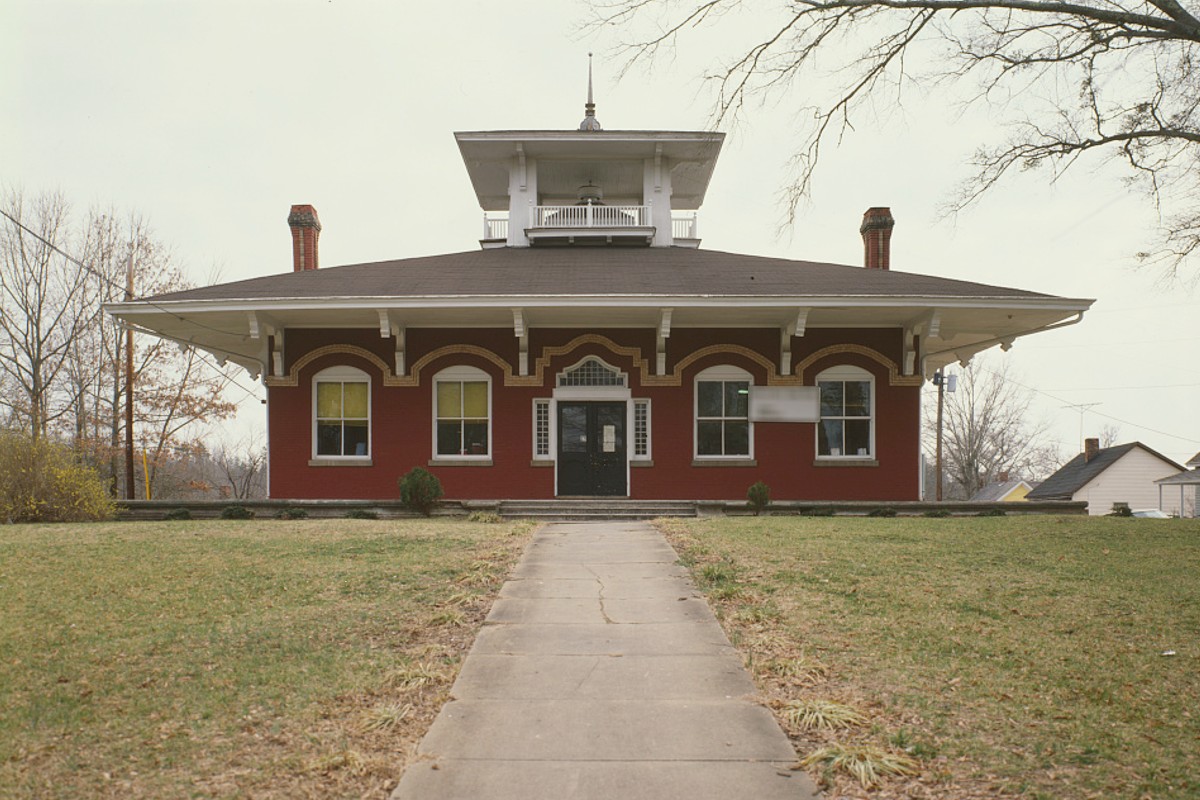STATEHOUSE REPORT | ISSUE 22.14 | April 7, 2023
NEWS: At-risk children, adults in S.C. need advocates
NEWS BRIEFS: Climer, Rice, Adams nudge permitless gun carry bill forward
LOWCOUNTRY, Ariail: American exceptionalism
COMMENTARY, Brack: S.C. solons will want to avoid what happened in Tennessee
SPOTLIGHT: Riley Institute at Furman University
FEEDBACK: Just say no to constitutional convention
MYSTERY PHOTO: Another old building
At-risk children, adults in S.C. need advocates

By Chelsea Grinstead | Vulnerable children and adults in South Carolina need more advocates to bridge the gap between them and the court system — and organizers say you could be the missing piece by becoming a volunteer guardian ad litem.
A “guardian ad litem” (GAL), a Latin term loosely translated as a person’s guardian for a lawsuit, is a volunteer or paid position open to adults who are interested in devoting time and energy to be a voice for a child or adult in need of an unbiased mediary within the South Carolina Family Court system. GALs are instrumental in representing a victimized or disabled person’s best interest to a judge.

“The benefits that GALs provide have been well-documented,” said David McAlhaney, Lowcountry regional recruiter and trainer for the S.C. Department of Children’s Advocacy in North Charleston. “A 2006 audit conducted by the U.S. Department of Justice’s Office of the Inspector General demonstrates that once a volunteer is assigned, approximately 95% of children do not languish in long-term foster care [and] 90% of children never re-enter the child welfare system.”
Children who are appointed a volunteer guardian ad litem are in custody of the S.C. Department of Social Services (DSS) and are victims of abuse or neglect. Volunteer GALs for children must be aged 21 years or older.
Adults who are appointed a volunteer guardian ad litem are under S.C. Department of Social Services (DSS) Adult Protective Services Emergency Protective Custody and have physical or mental impairments and cannot care for themselves due to abuse, exploitation or self-neglect. Volunteer GALs for adults must be aged 18 years or older.
Recruiting guardians
Mary Buskey of Columbia is the regional coordinator for the S.C. Vulnerable Adult Guardian ad Litem (VAGAL SC) and manages recruitment and retention of volunteer GALs for vulnerable adults throughout the state’s 46 counties.
“We are definitely looking for volunteers,” Buskey said. “We are trying to get as many as possible. There’s only 10 of us who are actually employed … and we just don’t know how many cases might come in. We need those volunteers to be there.”

VAGAL SC Director Brenda Stalzer said many of the vulnerable adults that the program works with have no one close to them to protect their well-being.
“It’s sad to see an older — or maybe even a younger — adult who doesn’t have anyone or has family exploiting or neglecting them,” Stalzer said. “To be there for them is a very rewarding and enriching experience.”
The basics of guardianship
GAL training programs equip volunteers with a better understanding of the S.C. Family Court system to help a person-in-need live their best life possible, Buskey said.

Volunteer guardian ad litems can dedicate their time to the required training and potential caseload on a flexible basis to accommodate their careers and families. A GAL visits clients, conducts interviews and research, reviews records, writes reports and appears in court.
The Family Court of the S.C. Judicial Branch requests volunteer GALs, and those interested submit an application and meet certain criteria such as background and reference checks. GALs for children do 30 hours of free virtual training provided by the Cass Elias McCarter Guardian ad Litem program, and GALs for adults do six hours of free in-person training provided by the VAGAL SC program.
Children’s advocacy requires four to six hours a month and adult advocacy requires 20 to 30 hours per case over a period of six months. To find answers about the basic requirements to advocate for children, see the guide online at the S.C. Department of Children’s Advocacy. For adult advocacy requirements, see the volunteer guide from the S.C. Department on Aging.
Being the change you want to see
GALs are a ray of hope for children who have experienced trauma, McAlhaney said, and the state is always in need of people who are interested in helping children in their local communities.
“Our GAL volunteers come from all walks of life: some work full-time, are retired, are students, and some are teachers, some are grandparents,” he said.
For aging adults who develop dementia and don’t remember their families or outlive their children, a guardian can stand in that place of loss to create a positive force, Buskey said.
“They need somebody to be there for them,” she said. “It’s sad to see a person being exploited by their own children, but it happens a lot. We need somebody there who’s going to say, ‘Okay, I’m here. What is it that you need in order to finish living out the rest of your life?’ You’ve got to have the heart and the want to do right by a person.
“You really make a difference in someone’s life,” Stalzer added. “We see a lot of hate. We see news stories about abuse, neglect and exploitation all the time, and you have a chance to do something about it in South Carolina. Any everyday person has a chance to make a difference.”
Chelsea Grinstead is a reporter with the Charleston City Paper, where this story first appeared.
- Have a comment? Send to feedback@statehousereport.com
Climer, Rice, Adams nudge permitless gun carry bill forward
Staff reports | Three Republican state senators – Sens. Wes Climer of Rock Hill, Rex Rice of Easley and Brian Adams of Goose Creek – voted this week to approve a bill to allow adults in South Carolina to carry a handgun legally with no permit or training required. Democratic Sens. Ronnie Sabb of and Dick Harpootlian of Columbia voted against the measure (S. 109).
![]() Police chiefs across the state widely warned senators from approving the measure to establish what’s called constitutional, or permitless, carry of a gun. A similar bill passed the S.C. House earlier this year.
Police chiefs across the state widely warned senators from approving the measure to establish what’s called constitutional, or permitless, carry of a gun. A similar bill passed the S.C. House earlier this year.
“This puts our law enforcement officers in a position to fail,” Columbia Police Chief Skip Holbrook testified at a hearing.
Proponents of the measure routinely say gun owners shouldn’t have a “government permission slip” to carry a gun. The state, however, requires various licenses and registrations for daily life – from driver’s licenses and insurance requirements to certifications for doctors, lawyers and even barbers and hairdressers.
In other news recent news:
House off next week. The S.C. House is off next week and returns April 18. The S.C. Senate continues committee work on the state budget and has several other subcommittee and committee meetings.
S.C. House passes teacher parental leave bill. The S.C. House on Wednesday unanimously passed a bill allowing teachers or other school district staff up to six weeks of paid leave when they give birth or adopt a child.
Clyburn backs ex-staffer to lead S.C. Democrats. U.S. Rep. Jim Clyburn is backing former staffer Christale Spain in her effort to lead South Carolina’s Democrats as the state prepares to host the party’s opening presidential primary in 2024.
S.C. House passes bill to allow betting on horse races. In a surprising move to some, the Republican supermajority in the S.C. House passed a Democrat’s bill to expand gambling on horse races through an app.
Lawmakers consider making school lunch free. During the past two years, school lunches were free for everyone, but since the program ended, schools have been left to pick up the tab. However, a new bill introduced by state lawmakers calls for the state to provide the funding to get free meals for students.
State worker raises planned in S.C. Senate budget. After years of rapid growth in tax collections, South Carolina lawmakers want to share the windfall with nearly every state employee.
S.C. senators advance Charter School Accountability Act. A state Senate subcommittee advanced the Charter School Accountability Act, which would put more safeguards in place to ensure South Carolina’s public charter schools are held accountable to serve their students.
S.C. House unanimously OKs elimination of tampon tax. South Carolina House lawmakers voted Wednesday to remove the state’s tampon tax, which would boost efforts to make menstrual products more accessible and affordable.
S.C. utility bills among nation’s highest, report shows. According to the report from move.org, the Palmetto State ranks ninth among states with the highest utility bills in 2023. Much of that cost in South Carolina comes from electricity use.
Deficient bridges being fixed, DOT says. The S.C. Department of Transportation (SCDOT) is more than halfway into its “Strategic 10-Year Plan” to replace and refurbish the state’s major highways, interstates and bridges. About half of the 500 bridges that are part of the plan have been fixed or are being fixed, the DOT says. Another 600 bridges apparently aren’t part of the plan.
Former president pleads not guilty to 34 felony counts. Former President Donald Trump appeared in a Manhattan courtroom Tuesday after surrendering to police. He is accused of covering up a potential sex scandal during his 2016 presidential campaign. He faces 34 felony counts, which carry a maximum sentence of 136 years. He pleaded not guilty to all charges.
American exceptionalism

Guns are on lots of people’s minds, including award-winning cartoonist Robert Ariail. He often interprets things a little differently, but always has an interesting take on what’s going on. Love the cartoon? Hate it? What do you think: feedback@statehousereport.com.
S.C. solons will want to avoid what happened in Tennessee

By Andy Brack, editor and publisher | If you have been reading about how Tennessee Republican legislators on Thursday expelled two Black Democratic Tennessee state representatives and fell one vote short of sending away a White Democratic colleague, hold on. Tennessee’s ride is going to get rougher.
 Will this raucous overreaction to loud words in Tennessee spill over into South Carolina’s Statehouse where former Gov. Mark Sanford once carried two piglets across the capitol’s lobby as a stunt to highlight pork-barrel spending? Probably not. Establishment Republicans here have their own problems to deal with – the rowdy Freedom Caucus of about 20 Republican firebrands who don’t want to play by the rules. In the last couple of weeks, you haven’t heard much from these conservative S.C. zealots. But they’re surely camouflaged on the outskirts, probably planning their next political guerrilla policy attack.
Will this raucous overreaction to loud words in Tennessee spill over into South Carolina’s Statehouse where former Gov. Mark Sanford once carried two piglets across the capitol’s lobby as a stunt to highlight pork-barrel spending? Probably not. Establishment Republicans here have their own problems to deal with – the rowdy Freedom Caucus of about 20 Republican firebrands who don’t want to play by the rules. In the last couple of weeks, you haven’t heard much from these conservative S.C. zealots. But they’re surely camouflaged on the outskirts, probably planning their next political guerrilla policy attack.
Meanwhile, what’s happened in Tennessee is troubling for a democracy already stressed by a former president’s selfish foibles and political lemmings more interested in headlines and power than getting something done. The Tennessee House’s antics have horrible optics for smug Republicans there. The explusions look racist – they got rid of the Black “troublemakers” but seemed to protect the longer-serving White incumbent. Even worse: it kind of feels like something that would have gone on in the German Reichstag of days gone by.
So let’s break it down. Following the March 27 murders of three students and three teachers at a Nashville Christian school, hundreds have rallied at the Tennessee capitol to demand tougher gun laws to curb future mindless shootings. Students, teachers, activists and parents have demanded action, which Republicans, who have a supermajority in the House, don’t want to deal with. They like their guns and don’t want anyone to question gun laws.
But that’s frustrating to people who want change. So three Democrats picked up a bullhorn last Thursday and used it on the Tennessee House floor. While they essentially brought the spirit of protesters inside, they were exercising their First Amendment rights on the floor, albeit loudly. The powers that be, however, didn’t like that. It was a breach of decorum, they said. And it embarrassed them. So they mounted the eventually successful effort to oust two of the three ringleaders, a tool used only a few times in the past (and not for loud words on the floor during a session.)
In doing so, Tennessee’s House Republicans have created more future headaches. Not only have they further divided their state – and a country – already split by partisan tribalism, but they humiliated themselves. Their hotheaded overreaction – to people using words as weapons who were frustrated by permissive laws to allow real weapons to kill people – made heroes of the Tennessee Three as real leaders who stood up to GOP tyranny.
Don’t bet against Tennessee’s two expelled Justins – Justin Jones and Justin J. Pearson. We doubt they will sit idly. It’s a pretty safe wager they’ll run for their now-vacant seats, be reelected by an overwhelming majority and be back in the House chamber next year.
So what does that eventually mean for the House GOP in Tennessee? In the end, they have accomplished little, other than generating a potential resurgence among Democrats and independents fed up with insider baseball, partisanship and continual kowtowing to the NRA, big business and the culture wars. House Republicans won’t go away quietly, but this may be the start of a downfall.
And maybe you can now see why the S.C. GOP will want to stay as far away as possible from what’s gone on in Tennessee. South Carolina’s Republicans will likely work to clean up its party’s own house (no pun intended) instead of worrying about what Democrats say – with a bullhorn, or not.
Andy Brack, recognized as the state’s best columnist in 2022 by the S.C. Press Association, is editor and publisher of Statehouse Report and the Charleston City Paper. Have a comment? Send to feedback@statehousereport.com.
Riley Institute at Furman University
 The public spiritedness of our underwriters allows us to bring Statehouse Report to you at no cost. This week’s spotlighted underwriter is Furman University’s Riley Institute, which broadens student and community perspectives about issues critical to South Carolina’s progress. It builds and engages present and future leaders, creates and shares data-supported information about the state’s core challenges, and links the leadership body to sustainable solutions.
The public spiritedness of our underwriters allows us to bring Statehouse Report to you at no cost. This week’s spotlighted underwriter is Furman University’s Riley Institute, which broadens student and community perspectives about issues critical to South Carolina’s progress. It builds and engages present and future leaders, creates and shares data-supported information about the state’s core challenges, and links the leadership body to sustainable solutions.
Launched in 1999, the Institute is named for former South Carolina Governor and former United States Secretary of Education Richard W. (Dick) Riley. It is committed to nonpartisanship in all it does and to a rhetoric-free, facts-based approach to change.
- Learn more about the Riley Institute.
- Also learn more about the Riley Institute’s Center for Education Policy and Leadership.
Just say no to constitutional convention
To the editor:
![]() I am very concerned about an Article V Constitutional Convention passing.
I am very concerned about an Article V Constitutional Convention passing.
Our rights, including freedom of speech and religion, the right to vote, workers rights,and women’s rights, are at risk. This is very serious and there are no rules as to how this would take place.
Special interests would have a big say in this and that is terrifying. I urge every legislator to vote NO on any bill calling for an Article 5 Constitutional Convention as it would not be restricted to just one item. It would be a free-for-all wishlist for special interests.
If our constitution has worked since the 1700s, there is no need for this and there is a way to add amendments. Don’t play games with the citizens of this country. Vote NO.
– Erin McKee, Mount Pleasant
Send us your thoughts
We encourage you to send in your thoughts about policy and politics impacting South Carolina. We’ve gotten some letters in the last few weeks – some positive, others nasty. We print non-defamatory comments, but unless you provide your contact information – name and hometown, plus a phone number used only by us for verification – we can’t publish your thoughts.
Have a comment? Send your letters or comments to: feedback@statehousereport.com. Make sure to provide your contact details (name, hometown and phone number for verification. Letters are limited to 150 words.
Another old building

Here’s another old building in the middle part of South Carolina. Recognize it or figure out where it is? Send us your guess – as well as your name and hometown – to feedback@statehousereport.com.
 Last week’s photo, “Old building,” was a 1933-era photo of Tocaland, an old plantation near Winnsboro in Fairfield County.
Last week’s photo, “Old building,” was a 1933-era photo of Tocaland, an old plantation near Winnsboro in Fairfield County.
Here’s what Jay Altman of Columbia found out about it via Wikipedia: “Tocaland is a historic plantation house located on S.C. Route 344 near Winnsboro, Fairfield County, South Carolina. It was built about 1854, and is a 1+1⁄2-story, weatherboarded frame Greek revival style dwelling on a raised basement. The front facade features four 8-foot high stuccoed granite piers that support a pedimented front porch. The porch is supported by four paneled wooden pillars, pilasters, and has a plain balustrade. It was added to the National Register of Historic Places in 1984.”
There were lots of guesses that the house was in Greenwood, Berkeley County, Florence County and points in between. But others who correctly identified it were: George Graf of Palmyra, Va.; Pat Keadle of Wagener; David Lupo of Mount Pleasant; Elizabeth Jones of Columbia; Allan Peel of San Antonio, Texas; Frank Bouknight of Summerville; and Penny Forrester of Tallahassee, Fla.
>> Send us a mystery picture. If you have a photo that you believe will stump readers, send it along (but make sure to tell us what it is because it may stump us too!) Send to: feedback@statehousereport.com and mark it as a photo submission. Thanks.
- ORDER NOW: Copies are in Lowcountry-area bookstores now, but if you can’t swing by, you can order a copy online today.
- Now available as an e-book!
ABOUT STATEHOUSE REPORT
Statehouse Report, founded in 2001 as a weekly legislative forecast that informs readers about what is going to happen in South Carolina politics and policy, is provided to you at no charge every Friday.
- Editor and publisher: Andy Brack, 843.670.3996
Donate today
We’re proud to offer Statehouse Report for free. For more than a dozen years, we’ve been the go-to place for insightful independent policy and political news and views in the Palmetto State. And we love it as much as you do.
But now, we can use your help. If you’ve been thinking of contributing to Statehouse Report over the years, now would be a great time to contribute as we deal with the crisis. In advance, thank you.
Buy the book
Now you can get a copy of editor and publisher Andy Brack’s We Can Do Better, South Carolina! ($14.99) as a paperback or as a Kindle book ($7.99). . The book of essays offers incisive commentaries by editor and publisher Andy Brack on the American South, the common good, vexing problems for the Palmetto State and interesting South Carolina leaders.
More
- Mailing address: Send inquiries by mail to: P.O. Box 21942, Charleston, SC 29413
- Subscriptions are free: Click to subscribe.
- We hope you’ll keep receiving the great news and information from Statehouse Report, but if you need to unsubscribe, go to the bottom of the weekly email issue and follow the instructions.
- Read our sister publication: Charleston City Paper (every Friday in print; Every day online)
- © 2023, Statehouse Report, a publication of City Paper Publishing, LLC. All rights reserved.















 We Can Do Better, South Carolina!
We Can Do Better, South Carolina!